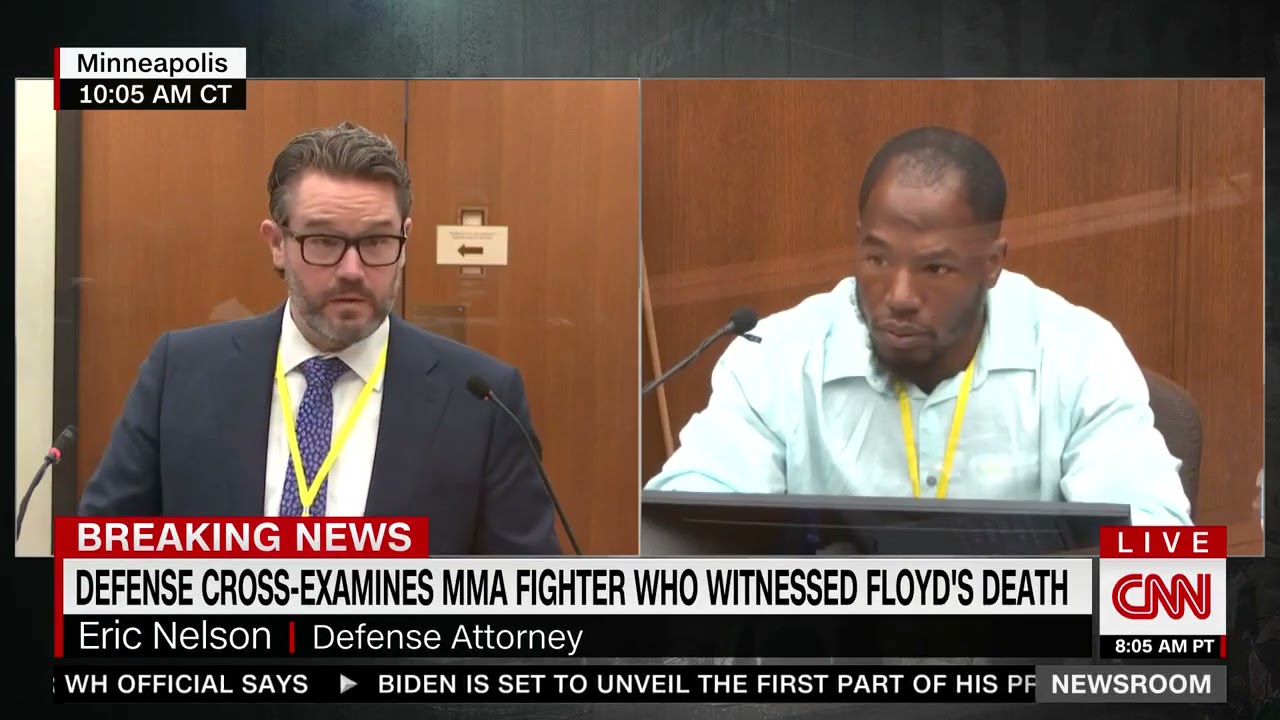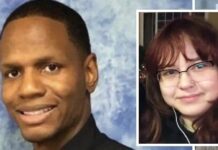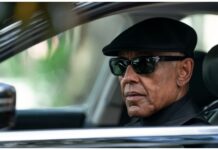
*The cross examination of a Black man who witnessed George Floyd’s final moments sparked criticism from some livestream watchers Tuesday after the defense attorney suggested that the man was “angry” at the scene.
Eric Nelson, attorney for defendant Derek Chauvin, listed the obscenities that Donald Williams II yelled at Chauvin and fellow officers to get off Floyd. Nelson also brought up an interview Williams conducted with investigators, in which he was asked to describe what happened.
“In that statement, you said that, ‘Like, I really wanted to beat the s**t out of the police officers,’ you said that,” Nelson said, reading from a transcript of the interview.
“Yeah, that’s what I felt,” Williams responded.
“So again, sir, it’s fair to say that you grew angrier and angrier.”
“No, you can’t paint me out as angry — I would say I was in a position where I had to be controlled. Controlled professionalism, I wasn’t angry,” he said, before being interrupted by Nelson, who objected on the grounds that Williams was being non-responsive.
Nelson was trying to build evidence for his defense – that his client was distracted and may have felt threatened by the increasingly agitated crowd of bystanders. Many watching online accused Nelson of playing on the racist “angry Black man” trope as a way to discredit Williams.
The Minneapolis Star Tribune reported on the reaction. “Williams is not an angry Black man just because he spoke up,” tweeted CNN commentator Keith Boykin.
“Anytime a Black man says he’s sick and tired, anytime a Black man opens up his mouth to say what he sees, they label him an ‘angry Black man,’ ” Rep. John Thompson, DFL-St. Paul, said in an interview.
Williams’ experience resonated with some Black men such as Brandon Williams, a criminal justice and safe communities intern at the Minneapolis Foundation, who said that “as a Black man who’s 6-5, 300 pounds from Chicago,” his frustrations are regularly misinterpreted as aggression.
He said that he feels the meaning of his words often get lost in translation.
“I would talk with the same demeanor that they had, but because I was taller, and maybe I was looking down on them, and I was being more animated talking with my hands,” he felt unheard, Williams said.
Some Black people respond by learning to code-switch, or changing the way they speak based on the audience, said Ferome Brown, who runs the outreach program Urban Youth Conservation.
“Being a big Black dude, and not being of a light-skinned color and being dark, I just feel like I’m always going to be looked at as a threat,” he said.
Artika Tyner, a professor at the University of St. Thomas School of Law, said that Donald Williams was most likely reacting to the trauma of watching Floyd’s final moments. “People are still grappling with the history of looking at all of the challenges around race in America,” she said. “And it didn’t start in 2020.”
We Publish News 24/7. Don’t Miss A Story. Click HERE to SUBSCRIBE to Our Newsletter Now!





